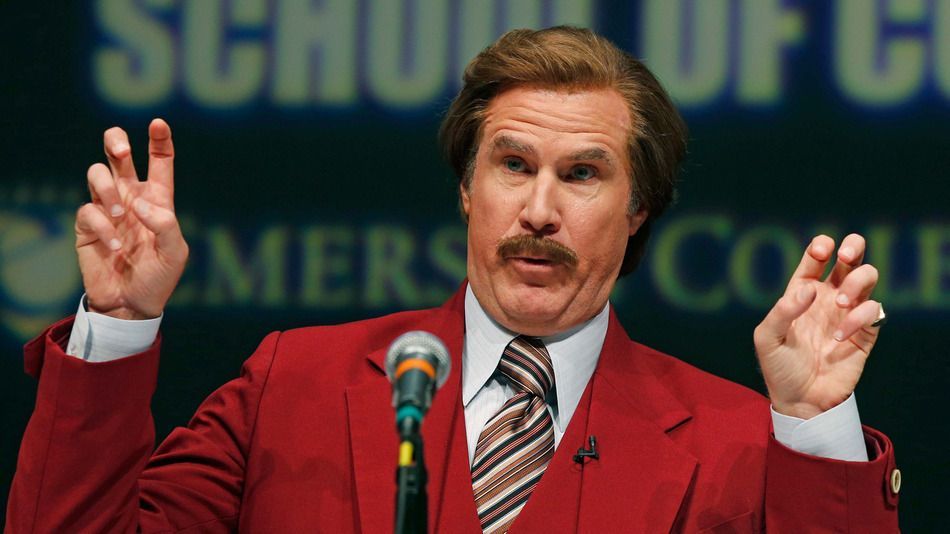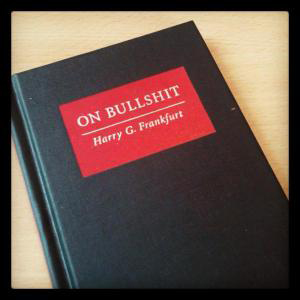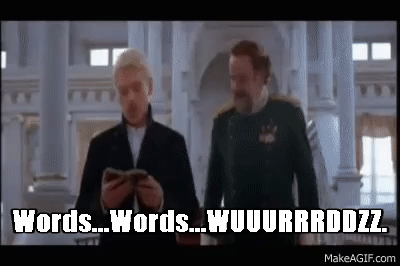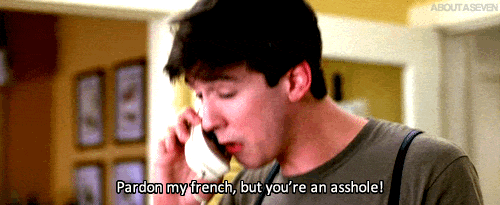Suppose Frank and Joe get into a Facebook debate, and suppose Frank knows a lot more about the issue over which they’re disagreeing. Neither one of them is really an expert, but Frank has read a lot more and maybe even has some sort-of relevant background. The longer the discussion goes, the more he realizes that Joe doesn’t really know what he’s talking about.
Let’s give Frank the benefit of the doubt. He’s not just a victim of confirmation bias. Joe really doesn’t know that much about the issue, it’s evident in what he’s written, and Frank’s assessment on that score is accurate.
So, naturally, this can lead Frank to feel a little smug, and smugness is toxic. It’s a poison that clouds our thinking, alienates us from people who could be our friends, and fuels arrogance and pride.
Frank is self-aware enough to realize that he’s having this reaction, but–as it turns out–there’s more to good character than just being able to recognize your own bad behavior. It’s good to suppress an angry outburst, for example, but it’s even better to overcome the anger itself. Controlling behavior is nice, but shaping character is better. Unfortunately, character can’t be shaped directly. We have to come at it sideways and ambush our own bad character traits when they least suspect it. We have to–wherever possible–cheat.
So here’s an idea.
The reason that Frank knows more than Joe about this issue is that Frank took the time to research it. He read dozens of articles. Joe didn’t, and so Joe doesn’t know as much. Instead of attributing his superiority in this one realm to some kind of personal attribute, Frank should ask himself: “What was Joe doing with the time I used to study this issue?”
Maybe Joe is lazy, and Joe was just watching reality TV show reruns. Maybe Joe is actually very curious and diligent, and was using the same amount of time studying some totally unrelated topic which–if they discussed it–would quickly demonstrate to Frank what it feels like to be the one who doesn’t really get it. Or maybe Joe wasn’t studying, but he uses his time volunteering to make his neighborhood a better place.
It doesn’t really matter, because–in practice–Frank will never know. The point of the question is to ask it, because asking it reframes the context of Frank’s smugness. It’s not about some kind of overall, general superiority of intellect. It’s about the simple fact that Frank spent time studying a particular issue, and Joe didn’t. This is a smugness antidote. On top of dispelling the person-to-person comparison, it raises questions for Frank, such as: Was studying this particular issue really that wise an expenditure of his finite time and energy? Maybe it was, but maybe it wasn’t, all things considered. This should make Frank a little uneasy. That’s healthy. Certainly fair healthier than smugness, at any rate.
I am not a very good person. This isn’t a statement of false humility. I suspect, all things considered, that I’m probably about average by most comparisons with others, although I’ll never really be sure.[ref]Assuming that I’m average seems a good rule of thumb, all things considered.[/ref] But that’s not the point. I don’t care about comparing myself with others; I care about the gap between who I am and who I’d like to be. And the person I’d like to be doesn’t have to devise strategies for decency or play tricks on himself to mimic virtue. That’s what I mean when I say I’m not a very good person.
But we don’t get to choose the kind of person we are. Not in an instant, anyway. We come into this world with a load of genetic and environmental baggage that, by the time we get around to being thinking, self-aware little human creatures, is already more than we could ever hope to sort through in a life time. All we can ever do is start where we are. Hopefully we make incremental steps in the right direction, but human character can’t be perfect in a life time. There’s the old expressions, “fake it ’till you make it.” We’re never going to make it. So we just have to keep faking it. Play-acting at being a good person–when it’s done out of a sincere desire to learn to be good–is the best we can hope for.
This is one technique I try to remind myself to use in that game, and I thought I’d share it.
 A couple months ago, I gave a talk on “
A couple months ago, I gave a talk on “

 Several years ago, philosopher Harry Frankfurt released his brief essay
Several years ago, philosopher Harry Frankfurt released his brief essay 
 In preparation for an upcoming talk in church on “trials and their purpose,” I purchased Eastern Orthodox philosopher David B. Hart’s book
In preparation for an upcoming talk in church on “trials and their purpose,” I purchased Eastern Orthodox philosopher David B. Hart’s book 

 Adam was placed in the Garden of Eden “to dress it and to keep it” (Genesis 2:15). Labor is not only the destiny of man; it is endowed with divine dignity. However, after he ate of the tree of knowledge he was condemned to toil, not only to labor “In toil shall thou eat … all the days of thy life” (Genesis 3:17). Labor is a blessing, toil is the misery of man. The Sabbath as a day of abstaining from work is not a depreciation but an affirmation of labor, a divine exaltation of its dignity. Thou shalt abstain from labor on the seventh day is a sequel to the command: Six days shalt thou labor, and do all thy work [Ex. 20:9]…The duty to work for six days is just as much a part of God’s covenant with man as the duty to abstain from work on the seventh day.[ref]
Adam was placed in the Garden of Eden “to dress it and to keep it” (Genesis 2:15). Labor is not only the destiny of man; it is endowed with divine dignity. However, after he ate of the tree of knowledge he was condemned to toil, not only to labor “In toil shall thou eat … all the days of thy life” (Genesis 3:17). Labor is a blessing, toil is the misery of man. The Sabbath as a day of abstaining from work is not a depreciation but an affirmation of labor, a divine exaltation of its dignity. Thou shalt abstain from labor on the seventh day is a sequel to the command: Six days shalt thou labor, and do all thy work [Ex. 20:9]…The duty to work for six days is just as much a part of God’s covenant with man as the duty to abstain from work on the seventh day.[ref]